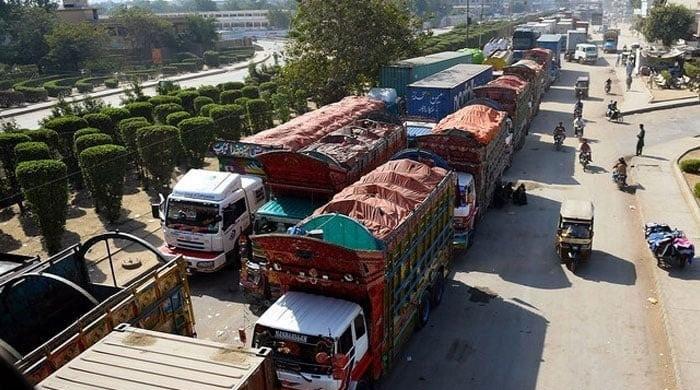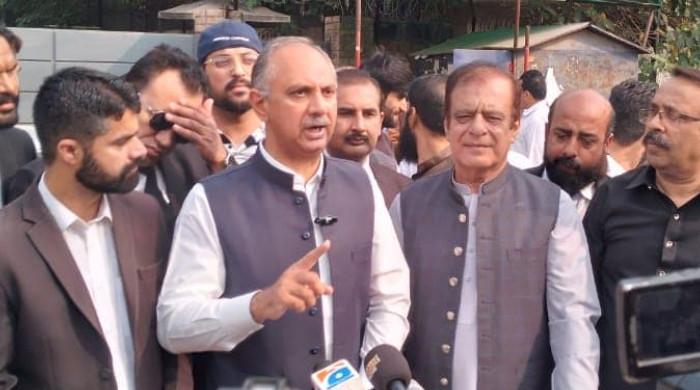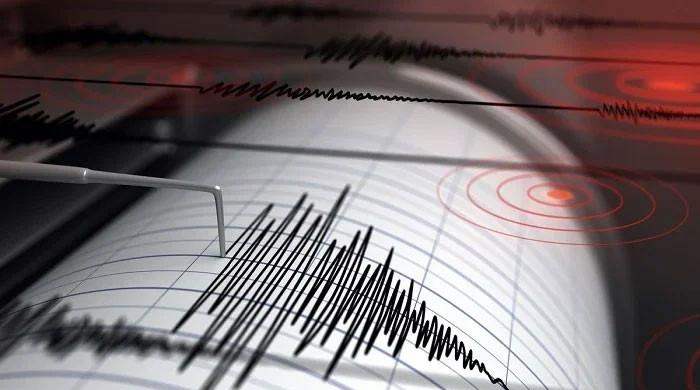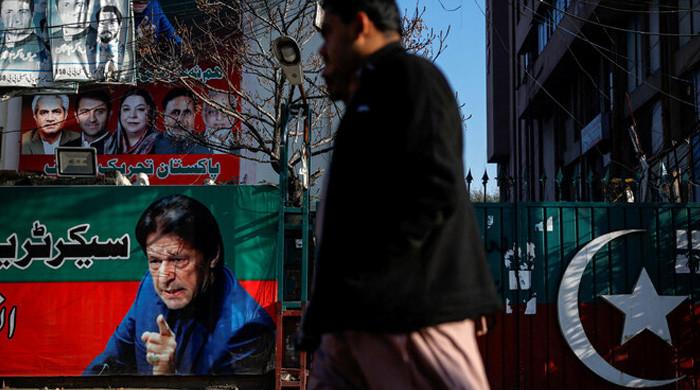Coronavirus: Govt mulls over schools' closure for children under 12
Dr Nausheen Hamid says govt to not close schools where children above 12, teachers are vaccinated against COVID-19
January 18, 2022
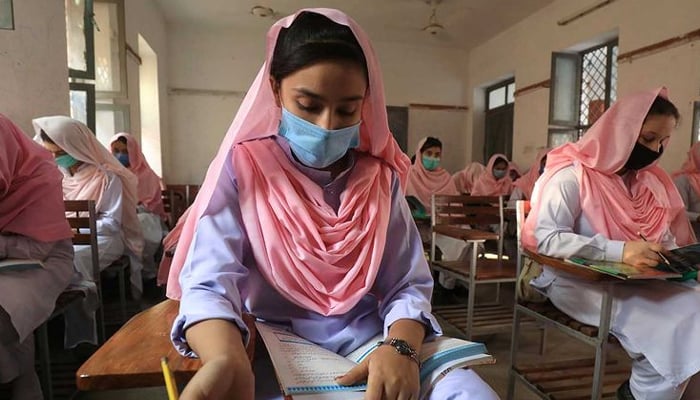
- Pakistan govt to not close schools where children above 12 are vaccinated, Dr Nausheen Hamid says.
- Says no need to impose blanket restrictions; curbs only in high infection areas.
- Indoor marriages expected to be banned as NCOC devises new SOPs, she adds.
The federal government is mulling over schools' closure for children under the age of 12 years, as they are yet to be vaccinated, Parliamentary Secretary on Health Dr Nausheen Hamid said Tuesday.
Speaking on Geo News programme Geo Pakistan, Dr Hamid said the government does not plan on closing schools where children above 12 years, staff, and teachers have been vaccinated.
Dr Hamid said the National Command and Operation Centre (NCOC) — the forum leading the country's pandemic response — is devising a strategy to keep checks and balances on public gatherings, which are a major reason for the spread of the virus. It will be formulated in a day or two, she said.
Pakistan's coronavirus positivity ratio reached 9.45% in the last 24 hours after the country reported 5,034 new cases, according to the NCOC's Tuesday morning data.
'No need' to impose blanket restrictions
The parliamentary secretary said there is no need to impose blanket restrictions across the country and curbs will only be enforced where the positivity ratio is high — with Karachi at the top.
"Public gatherings will definitely be suspended in these cities and criteria is being set for it [...] the NCOC will have a strategy formulated in two to three days," Dr Hamid said.
The fate of wedding halls
The data suggests that wedding are one of the major reasons behind the spread of coronavirus and the government will "definitely" have to ban indoor weddings in high positivity ratio areas.
"[NCOC] might allow outdoor weddings with some restrictions. At the moment, we are collecting data and a decision will be made after consultation with all provinces," she added.
NCOC meeting
Dr Hamid's comments came after the NCOC's Monday meeting decided to take a final decision on the fate of schools' after it looks at the data of the positivity rates of various institutions.
The NCOC had called a meeting of the provincial health and education ministers today to take decisions on coronavirus restrictions, including schools' closure.
The NCOC said the participants of the meeting discussed a new set of NPIs keeping in view the disease prevalence, following which, it was decided that the NPIs will be enforced by the provinces in the next 48 hours after consultative process with all stakeholders.
PMA seeks ban on public gatherings
The Pakistan Medical Association (PMA), meanwhile, has expressed concerns regarding the worsening coronavirus situation in the country.
They have demanded the government immediately impose a ban on political rallies, sit-ins and other public gatherings.
A statement issued by the PMA on Tuesday said that Karachi's positivity rate has touched 40%, which is the ratio for only registered cases but the actual number of infections could be much higher.
The association also warned of further aggravation of the coronavirus situation across the country in the next two to three weeks and said that there is a risk that the Omicron variant could become more deadly.
Besides seeking a ban on gatherings, PMA also called for the penalisation of those who don't follow SOPs and strictness on checking vaccination cards at shopping malls and restaurants.




